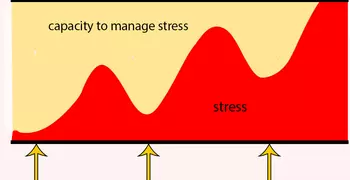Mindful Holiday Giving

The holiday season is approaching, which for many also means gift-giving season. Take a moment to reflect: how does shopping for gifts affect you?
 “I love, love, love giving gifts especially when I know I have found something that will make the other person smile. I think because I grew up pretty poor, as an adult I am so genuinely grateful to be able to give presents to folks I love.” Karen, 34
“I love, love, love giving gifts especially when I know I have found something that will make the other person smile. I think because I grew up pretty poor, as an adult I am so genuinely grateful to be able to give presents to folks I love.” Karen, 34- “A lot of holiday gift giving seems perfunctory. I dislike feeling pressure to prove my friendship or love by giving gifts at preordained dates on the calendar.” Michael, 29
- “My family and I stopped giving gifts years ago. Now that we are older we don't need more "stuff," and we’d rather just talk or spend time together when we can.” Cynthia, 47
The holidays bring with them a mixture of emotions, but one thing most people can agree on is that it feels good to give a genuine gift—whether that’s a store-bought present, a handmade item, or simply your love and attention. And that rush of excitement you feel when you give someone a gift isn’t just in your imagination—research shows that spending money on others will give you a much bigger boost of happiness than buying something for yourself.
But there’s a downside to the holiday gift-exchange culture, which is the stress that comes along with spending large amounts of money, standing in long lines at the mall, or feeling the pressure to buy for everyone on your list. “Turning on the evening news on Black Friday is the worst,” says Michael, 40. “Seeing stampedes of shoppers fight over a gadget that will be obsolete by February leaves me with little hope for humanity."
Here are some tips to help you enjoy the gift-giving process while minimizing the stress that often comes with shopping:
- Give experiences, rather than objects. Research shows that while people lose interest in material goods over time, their sense of satisfaction with an experience stays high. Think about giving your loved ones a gift you can’t wrap—like a massage or a painting lesson. Experiences you can share together—like a cooking class—can also enhance your relationship and create memories that bond you for much longer than an iPod might last.
- Make your gift a donation. If you are searching for a meaningful gift, consider making a donation to a charity in your recipient’s name. This gift has the potential to benefit a number of people, including the organization to which you donate, your recipient, and even you! Not only do many charities strengthen the foundation of community (which in turn benefits you), but research links acts of altruism to better health, happiness, and a strengthened sense of purpose for the giver. Find out what causes your recipient finds particularly meaningful—the environment? A children’s charity or cancer research? Making a donation in their name will have deeper significance and will last longer than something you might buy at the store.
- Practice mindful shopping. When you do pick out a gift at the mall, take note: are you buying what you planned to buy? Or were you seduced by slickly packaged goods or a pressure to get something “nice”? Notice when you find yourself caught by the sometimes materialistic messages from advertisers and take a moment to reflect on whether you’re truly buying something that comes from your heart.
- Don’t spend more than you have. Maxing out your credit cards may let you afford more purchased gifts, but the stress, anxiety, and depression that comes with debt isn’t worth it. Gifts don’t need to be expensive to be meaningful. “My favorite gifts to give are the ones I make each year,” says Diane, 35. “I make chocolate-covered pretzel rods and decorate them in holiday colors, package them up with a ribbon, and give them to my friends, family and neighbors as a token of my love and appreciation.”
- Savor the feeling of generosity. It feels good to give, so why not let that feeling linger? Positivity expert Barbara Fredrickson has found that relishing a positive emotion while it’s happening can strengthen positive attitudes in the brain, which leads to increased happiness. As you buy or make a gift, think about how happy it makes you to give, and let that feeling stay with you as you wrap and deliver it, relishing the feeling of making another person feel appreciated. (You can savor gratitude, too! When someone gives you a gift, let yourself feel the deep appreciation, rather than just tearing it open and moving on to the next.)
Carter, T., & Gilovich, T. (2010). The relative relativity of material and experiential purchases. Journal of Personality and Social Psychology, 98(1), 1193.
Dunn, E. W., Aknin, L. B., & Norton, M. I. (2008). Spending money on others promotes happiness. Science, 319(5870), 1687-1688.
Poulin, M.J., Brown, S.L., Dillard, A.J., Smith, D.M. (2010). Giving to others and the association between stress and mortality. Am J Public Health; 103(9), 1649-55.



















